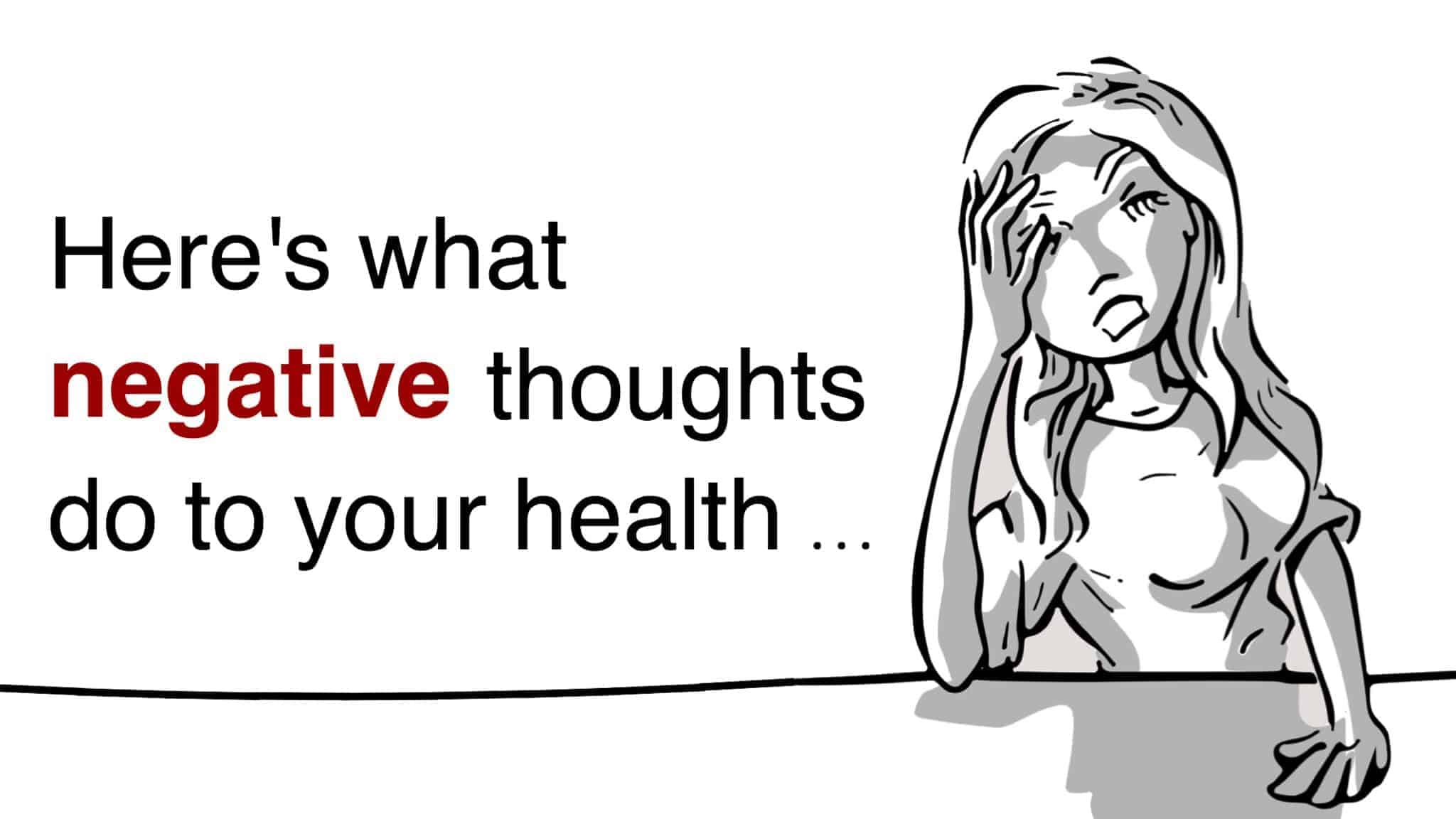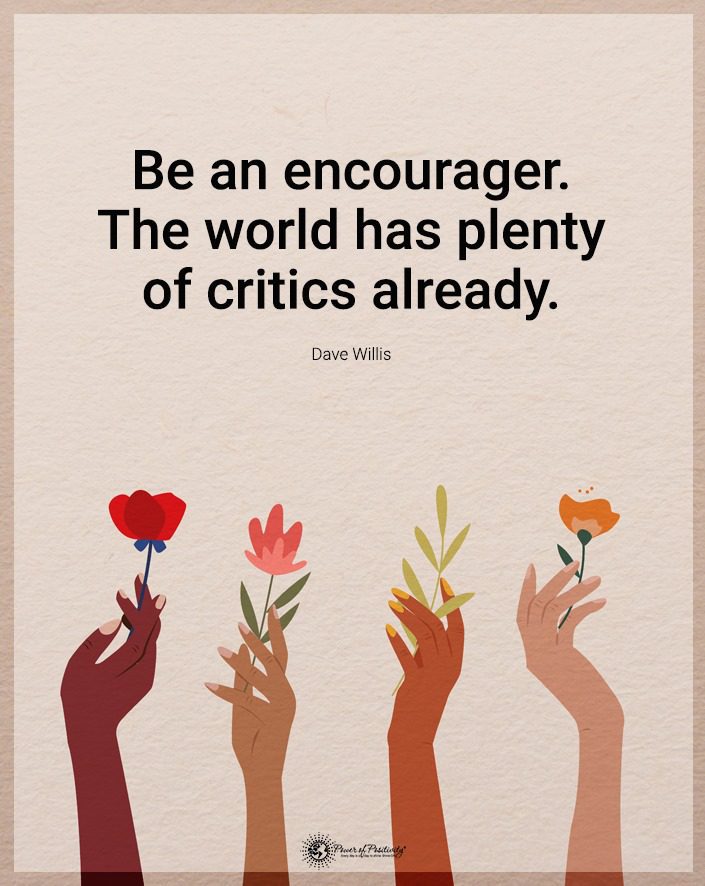We all know the phrase: “You are your own worst enemy.” What does it mean to you? Take a moment or two to pause and reflect. Nope, five seconds is not “a moment or two.” Search deep inside yourself–do you engage in negative thinking? Seriously. This is your health that is at stake.
Tick tock. Excuse me, let me grab a coffee while you work your interior magic. Keep up the excellent work reflecting.
Proof Positive: Negative Thinking Is Bad For Your Health
Done it? Good. Unfortunately, this is a one-way conversation, so your thoughts stay where they are (if someone out there has a way to convey their thoughts telepathically, we are all ears… or all minds, or whatever!). My particular sentiments on this are that it hurts. Yes, it kills me inside. It is known as “the nocebo effect,” the other side of the coin to the placebo effect. “The term nocebo (Latin noc?b?, “I shall harm,” from noce?, “I harm”) was coined by Walter Kennedy in 1961 to denote the counterpart to the use of placebo (Latin plac?b?, “I shall please,” from place?, “I please”); as a substance that may produce a beneficial, healthful, pleasant, or desirable effect,” affirms Wikipedia. Using the mind in life, we can either hurt or help ourselves.
With the placebo/nocebo effect, take Raj in The Big Bang Theory as an example, who had an irrational fear of talking to women without alcohol. With a bottle of (non-alcoholic) beer in his hand, he confidently walks up and talks to Summer Glau, a famous actress, on the train. He impresses her with his charm until Howard points out what Raj is drinking, and the poor Indian astrophysicist returns to his fearful self and timidly walks away.
Dr. Masaru Emoto’s Water Experiment
According to Dr. Masaru’s water experiments, Dr. Masaru Emoto studied water crystals for years to study the crystal structures that water forms. He landed on a beautiful piece of evidence of how negativity impacts the systems. He would play the crystals with different kinds of music and would also expose the crystals to other emotions. What Dr. Emoto found was that positivity led to beautiful crystal forms whereas hate and negativity led to the dissipation and irregularity of the crystal form.” What does this have to do with humans? I thought you would never ask: This has implications for the health of the human body as we are composed of 50-70% water.
Emiliana Simon-Thomas, Ph.D., science director of the Greater Good Science Center at UC Berkeley, was quoted as saying by Health.com: “Many negative emotions such as anger, fear, and frustration become problematic when those emotions turn into a more permanent disposition or a habitual outlook on the world.” Health.com does not stop there. It also talks about some negative emotional states and their impact on the physical and neurological parts of the well-being of a human being.
Cynicism and Negative Thinking
They continue… “Take cynicism, for example; a 2014 study published in the journal Neurology linked high levels of cynicism later in life, i.e., a general distrust of people (and their motives), to a greater risk of dementia compared to those who were more trusting, even after accounting for other risk factors like age, sex, specific heart health markers, smoking status, and more. This way of thinking may also hurt your heart.
A 2009 study from the journal Circulation looked at data from nearly 100,000 women and found that the most cynical participants were more likely to have heart disease than the least cynical folks. The more pessimistic women also had a higher chance of dying over the study period, versus those who were more optimistic about humanity.” Fear not, dear friends. We can change this. Simon-Thomas goes on: “We know that neural pathways are changing every minute of your entire life and that your brain is generating new cells throughout your life. And this neurogenesis is not only associated with the formation of new memories, but with mood stability, as well.”
Simon-Thomas concludes: “We can be deliberate about shifting our habits of feeling and thinking in the world.”
10 Habits To Reverse Negative Thinking and Be Happier In Life
Now that you know the reasons to bring more positivity into your life, here are some steps you can take to be more positive.
1. Seek to be grateful
Being grateful can have a powerful effect on your health. Negative thoughts take a backseat when focusing on what you are thankful for in your life. Take some time, every day, to look back at your day. Some people call this looking for the “roses” or the “thorns.” The roses are those good things that happened that you feel grateful for in your day. The “thorns” are those things that weren’t so great. Looking at both gives you a realistic picture of life. There’s the bad stuff, but there is always something to be grateful for in your daily life.
2. Take a deep breath
Breathing comes naturally, but when you’re struggling with negative thoughts, you may need to take a couple of extra deep breaths to get refocused. Breathe in deeply and slowly allow the air to escape from your mouth. Relax your body and your mind. This can reset your brain.
3. Help someone
Helping someone is a natural way to help push away your negative thoughts. Focusing on someone else and their problems put your negative stuff into perspective. It may feel counterintuitive to reach out to others when you’re feeling negative, but it’s worth the effort. Studies show that helping others improves happiness and decreases stress and loneliness. It also builds your resilience so you can face difficulties better. Some places that are always looking for volunteers include:
- A soup kitchen
- Churches
- Schools
- Local hospitals
- Pet shelters
4. Be alert to your negative thinking
It’s good to understand yourself and how you think. It’s good to know your specific temptations. Being attentive to your negative thoughts helps you not be surprised by them. You know yourself well enough to realize you’re headed into dangerous waters by thinking a certain way. Asking yourself some questions can help you figure out why you’re having negative thoughts. Ask yourself things like:
- Why am I feeling like this? What triggered these thoughts?
- What happened that caused me to feel sad suddenly? Angry? Discouraged?
- Did someone say something or do something that made me feel this way?
Once you understand what’s going on, you can redirect your thoughts away from negativity. Slowing down your negative thoughts and turning them around from the direction they’re headed is helpful. This helps you stop the downward spiral of negative thoughts and makes you feel in control of your thoughts rather than your thoughts being in control of you.
5. See the humor
Seeing the humor in your negative thoughts is a positive way to reverse your negativity. This doesn’t mean you try to pretend you’re not feeling negative, but it’s being able to laugh at yourself. It’s refusing to let the negative thoughts control you. You control them and how much they can affect your mood. Laugh at the ridiculousness of where your negativity is headed and tell them to turn around.
6. Don’t pretend
Of course, it’s never good to pretend you don’t have negative thoughts. It’s best to look your negativity straight in the eye instead of resisting them. Accept that you are having negative thoughts. You’ll feel better just being honest with yourself. Once you accept them, it’s easier to disarm their power over you. Your negative thoughts don’t need to define you. Tell yourself something like,
Yep, these bothersome negative thoughts have shown up again, but today, I’m not going to listen to them. I want to focus on what I’m doing. I don’t have time for the pain they’re trying to inflict on me.
7. Take Full Responsibility
Taking responsibility means you accept your part and make it right. If you did something and it’s bothering you, take responsibility for your part. If there’s an apology you need to make or some restitution, you should make, take action and do it. Then let go of it. Don’t beat yourself up about your mistakes. Everyone makes them. Perhaps you struggle with perfectionism, and making a mistake is awful to you. Remember, only God is perfect, so you are off the hook.
8. Write about your negative thinking habits
If you’re struggling with negative thinking, it’s essential that you deal with these thoughts before they continue. Writing your thoughts can help you feel better. It gives you a chance to express yourself and then move on. Writing your thoughts is a form of self-talk that enables you to get back into a positive mindset.
9. Choose to be happy
Every day, you can choose how you will face your day. You can decide if you want to be happy or sad. What you focus on is critical. You can focus on the good or the bad. You have the power to choose to be positive and happy about your life, even if it’s not perfect. Other ways to make yourself feel happier include:
- Get out in fresh air
- Be with people
- Limited decisions
- Stay busy
10. Learn how to handle the hard stuff
Life isn’t always easy. There are unpleasant things that happen at work, school, and even at home. People can be critical or judgmental of you. This can lead to feelings of anxiety or negative thinking. If you find this happening to you a lot, it’s essential to figure out how to respond to these things. Some things you can do when faced with criticism include the following:
- Don’t react right away. Say something like, “I need some time to think about this. Get more information if required. Then digest what was shared.
- See if there is any truth. Surprise, you’re not perfect. In every criticism, there could be a tiny grain of truth. Dig for that nugget. If the person is sincere in their desire to help you, you can go back and thank them for the insight. If the person is out to hurt you, skip going back.
- Remind yourself about your identity. Remind yourself that this is one person’s perspective. Your identity isn’t tied to their view of you.
- Don’t be a martyr. Instead, ask a friend for their thoughts on what was shared.
- Don’t let negative thinking happen. Resist the urge to spiral down into negativity.
Final Thoughts On How To Replace Negative Thinking With Positivity
Everyone struggles with negative thoughts. It’s not that you have them, but what you do with these negative thoughts that is important. Understanding yourself enough to know you’re spiraling down into negativity is the first step. Taking action to turn those negative thoughts around, finding the humor in them, writing about them, or finding someone you can help are all positive steps to replace your negative thoughts with positivity.
















 Community
Community

